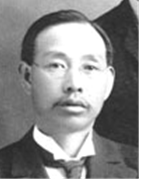Born in Uiju, North Pyongan Province, his contributions can be well understood through the writings left by Hong Eon at that time.
“On April 18 of the same year, a major earthquake erupted in San Francisco, and as the San Francisco branch was engulfed in flames, the public hall was also buried in the fire. They barely saved the Ministry of Education’s documents and hurriedly crossed over to Oakland to establish a temporary office. They printed the news of the disaster on a lithograph and communicated the information to various places. The Oahu Friendship Society in Hawaii sent a letter expressing their condolences.
After encountering such a great disaster, the Public Association did not cease its activities and resumed publishing a lithograph newspaper in July of the same year. In August, His Majesty Emperor Gwangmu granted relief funds for the Korean residents in the United States who had suffered from the disaster, marking the first time that overseas Koreans received protection from the domestic government.
With sincere gratitude, they sent the relief funds to the Public Association to rebuild the public hall. After the public hall was once again established in Oakland, they communicated with various societies in the homeland and sent letters from the leadership of the Self-Strengthening Society, requesting cooperation. This was the first time that overseas Korean organizations sought to connect with domestic political parties.
The general community further united to elevate the reputation of the Public Association, and in April of the eleventh year of Gwangmu, they finally began using movable type in the public newspaper, demonstrating the intense passion of the community. However, the efforts of the officials were also exhausting, and Chairman Song Seok-jun, who was bedridden, managed the affairs and publishing institution until he passed away on May 17 of the eleventh year of Gwangmu, without witnessing the relocation of the Oakland Public Hall back to San Francisco. He was buried in the public cemetery in Los Angeles. Among those who dedicated themselves to the overseas Korean organizations, only Song Seok-jun sacrificed his life. Although he was not originally a great hero or a great figure, he worked tirelessly for his compatriots and devoted himself to the organization, making him a figure worthy of respect. Lying on a sickbed, he held a brush and expressed his feelings, which moved the hearts of all, causing tears of sympathy to flow for him at that time.
At that time, the Public Hall had moved back to San Francisco, and all affairs gradually became organized. However, suddenly, the chairman faced a crisis, and the sorrow of the government members was felt as they reminisced about the past, making the future progress somewhat uncertain. Vice Chairman Jeong Jae-gwan took over the affairs of the association, and all operations were still organized, with all matters being conducted with great secrecy and dignity.
Subsequently, the Public Newspaper gradually expanded, publishing three to four thousand copies in various places in the homeland and abroad. In September of the first year of the Yonghui era, the compatriots in Vladivostok finally sent letters to establish communication, and in February of the following year, the women’s society in the homeland circulated a petition to support the Public Newspaper, establishing a fundraising office at the Daily Newspaper Company.
This marked the first time that overseas Korean organizations sought to spread their influence in the various societies in the homeland. In the first year of Yonghui, which corresponds to the year 4240 in the Korean calendar, prominent figures residing in San Francisco organized the Daedongbo National Defense Association and established branches in various southern regions…”
The government awarded him the Order of National Foundation in 1990.

Leave a Reply